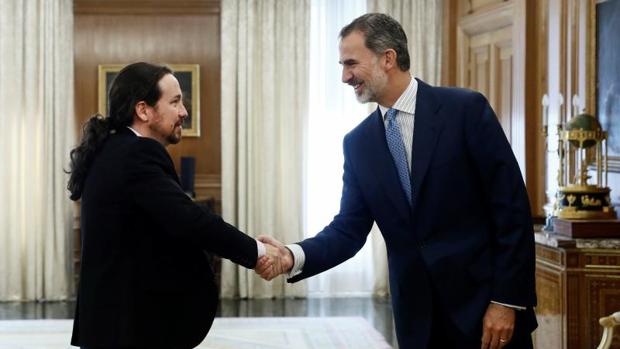Por Rubén Tzanoff
Una gesta que no alcanzó para lograr cambios de fondo. Hay que recrearla, asimilando los cambios que necesita para triunfar. Se puede hacer, alejándose del reformismo y construyendo fuertes partidos socialistas revolucionarios.
La crisis capitalista del 2008 impactó duramente en el Estado español, profundizando la desigualdad social. Los gobiernos se dedicaron a salvar a los bancos y a los poderosos, a la par de quitarle conquistas históricas al movimiento obrero. El descontento no tardó en expresarse mediante huelgas y movilizaciones contra la política de José Luis Rodríguez Zapatero. A nivel político amplios sectores sociales llegaron a la conclusión que el bipartidismo “PPSOE” , las limitaciones democráticas y el sistema eran las principales causas de los padecimientos populares. Es en este contexto que emerge el Movimiento 15M como genuina expresión de los Indignados, de los jóvenes, los trabajadores, los pensionistas y de todos los perjudicados por la crisis capitalista. Desde la convocatoria a la manifestación del 15 de mayo de 2011 en Madrid, la Puerta del Sol comenzó a ser el foco que iluminó los acampes, las asambleas y las acciones de distintos colectivos sociales que se extendieron espontáneamente por las ciudades y pueblos del Estado español. Las consignas levantadas expresaron el estado de ánimo dominante, dispuesto a sepultar a la vieja política: “No somos marionetas en manos de políticos y banqueros” “Democracia real ¡YA!” Más tarde, en 2014 esa esperanza adquirió una forma política, la creación de Podemos, en la que se destacaron como fundadores Pablo Iglesias e Iñigo Errejón. En gran medida, la vanguardia mundial, trabajadora y juvenil se inspiró en los Indignados y en la formación de Podemos para orientar su acción y tomar un rumbo. A 10 años del inicio de semejante proceso, es necesario repensar lo sucedido y sacar conclusiones de cara al futuro.
Sin lugar a duda, fue una gran gesta, pero no alcanzó para lograr cambios profundos. Por eso, hay que recrearla, pero asimilando lo que necesita para triunfar y no se realizó. El próximo 15M tiene que ser más profundo y extendido, con un rol protagónico de los trabajadores, los estudiantes, el movimiento feminista y los pensionistas organizados, con movilizaciones masivas y huelgas generales. No es sólo por un balance de las limitaciones del pasado sino también por el camino que empiezan a señalar las rebeliones que recorren el mundo. Esta vez tiene que estar dotado de un programa transicional, que en sus aspectos democráticos de respuestas al agotamiento del régimen monárquico parlamentario del ˋ78 y en lo económico brinde una salida a la crisis capitalista. Con organismos democráticos de debate y decisión y dirigentes combativos y consecuentes.
Los grandes procesos políticos dejan huella. Quedan grabados en la retina de millones de personas en el mundo como una referencia para la acción. Son procesos de movilización con sus propias características, fenómenos claramente individualizables en sí mismos. Y es precisamente esta característica la que diferencia al 15M de otras fechas que se difuminan del calendario. Al mismo tiempo, las explosiones sociales siempre se relacionan con las formaciones políticas y los dirigentes que, nacen, mueren, avanzan o retroceden con acuerdo a su intervención en ellas. Esta realidad hace prácticamente imposible referirse al 15M sin analizar el surgimiento, auge, crecimiento y ocaso de Podemos y el devenir del reformismo de centroizquierda a nivel mundial.
Los 10 años del 15M se dan con una paradoja. Mientras que plantean la necesidad de recrearlo, distinto y actualizado, son testigos del entierro político de un dirigente nacido de sus entrañas. En el epitafio sobre la tumba podría decir: “Aquí yacen los restos políticos de Pablo Iglesias y su proyecto reformista”. Quien fuera el creador y máximo dirigente de Podemos ha dejado la política luego de las elecciones del 4 de mayo de Madrid. Lo ha hecho diciendo: “Cuándo uno no es útil, tiene que saber retirarse”, es decir, en base a una decisión motivada en un resultado electoral, en el terreno de la democracia burguesa, que a la postre fue el elegido por Iglesias en reemplazo del escenario de la lucha de clases. De cara a los grandes cambios que se necesitan, es un retiro “sin pena ni gloria”. Iglesias fue un emergente del proceso del 15M que interpretó el hartazgo de la juventud con la vieja política y “la casta” expresándolo en una consigna por la positiva: “Sí se puede”. Sin embargo, repitió el mismo esquema de otros destacados reformistas y sus organizaciones, que ascienden enarbolando posturas de cambios profundos, crecen adaptándose al régimen democrático burgués, terminan claudicando a los poderosos y defraudando la confianza del movimiento de masas.

Para llegar a los supuestos “Ayuntamientos del Cambio” y luego incorporarse al gobierno burgués de Pedro Sánchez (PSOE), Podemos fue eliminando las aristas más rebeldes de sus propuestas programáticas hasta superar las fronteras de clase, dando un salto mortal hacia atrás. No se trata del accionar particular de un dirigente nacional, sino de la tónica general de los dirigentes de centroizquierda y “progresistas” en todo el mundo. Es similar a lo de Lula con el PT, a lo de Correa con Alianza PAÍS-Revolución Ciudadana, o a lo de Tsipras con SYRIZA, a lo que hacen los dirigentes del Bloque de Izquierda en Portugal o Die Linke en Alemania. Incluso el PSOL de Brasil y la CUP de Catalunya están en una encrucijada, transitan por un camino sinuoso, al borde del precipicio del reformismo apenas crítico del sistema capitalista. Las mentiras, la desmoralización y desmovilización que provocan los reformistas no queda como el tema de una tesis para los académicos dedicados a las ciencias políticas. Tiene consecuencias concretas: le allana el camino a la derecha. Son estas expresiones contrarrevolucionarias las que se fortalecen ante cada mentira, ante cada decepción e inconsecuencia de la centroizquierda.
La década que pasó desde el 15M tiene que servir para reflexionar ¿Cuántas veces hemos escuchado decir a los reformistas como Iglesias: “somos de izquierda y anticapitalistas” , “hay que cambiar a los partidos desde adentro” “hay que apoyar lo bueno de un gobierno y criticar lo malo”? Para luego verlos adaptarse a las reglas del régimen y al sistema de explotación, agitando la utopía de “humanizar al capitalismo”. Y cuando no logran convencer a los sectores más combativos argumentan miserablemente “somos el mal menor, apóyanos sólo para que no gane la derecha” cuando en realidad son quienes le allana el camino. ¡Cuántas veces hacen silencio ante la lucha de los pueblos que se alzan contra opresores de centroizquierda! ¡Cuántas veces intentan llevar al movimiento de masas a tomar posición por el imperialismo ruso o chino contra el imperialismo europeo o norteamericano, bajo la teoría del campismo! Estas trampas tienen su correlato reaccionario en la organización partidaria. Iglesias y Podemos se llenan la boca de “democracia participativa” y organización “horizontal” , pero son una picadora burocrática de opositores políticos y aplastamiento de matices, dentro de la cual las decisiones verdaderamente importantes se toman en forma verticalista. Los reformistas como Iglesias no ayudan a eliminar a “la casta” , le lavan la cara como “pata izquierda” o se integran a ella.
Tal vez te interese: Estado español, defendemos las libertades democráticas
Lamentablemente, en muchos casos el proceso de auge de los reformistas pasa a su fase de ocaso sin que las organizaciones socialistas revolucionarias tengan una política hacia ellos. Sin desplegar tácticas para dialogar con los sectores más combativos que siguen a estas formaciones, aunque estén confundidos, para ganar influencia sobre ellos y cuando llegue el inevitable momento de la traición política de sus dirigentes, canalizarlo hacia el fortalecimiento de una alternativa socialista y revolucionaria. El rechazo a las tácticas sobre estos fenómenos es una actitud sectaria que sólo favorece a los reformistas, aunque se tiña de un discurso de izquierda radical.

Los reformistas no son ni serán una alternativa de cambios profundos para dar vuelta todo. No se trata de adivinar el futuro, sino de sacar conclusiones sobre el pasado y prepararse para lo que se viene. Dos graves crisis de la economía capitalista en doce años no sólo han abierto importantes roces Inter imperialistas, una feroz disputa por los mercados y el “reparto de la torta”; han provocado un sobredimensionamiento de la especulación financiera sobre la producción. Han provocado saqueo, destrucción de la naturaleza y el aumento de las deudas externas. Y cuando pasa esto, se abre una etapa en la cual la burguesía y sus socios reformistas no reparten ni siquiera las migajas que se caen de la mesa de los ricos, en la cual los trabajadores y el pueblo se ven obligados a luchar con todas sus fuerzas para conseguir satisfacer sus necesidades más elementales de salud, vivienda, educación, empleo y alimentación. Y este terreno de las rebeliones, las movilizaciones y las luchas es precisamente, el que los reformistas quieren evitar o llevar a un callejón sin salida. No estamos en una etapa en que los dirigentes reformistas vayan a “avanzar más allá de sus intenciones” por presión de la lucha de clases o “circunstancias históricas particulares”. Es el momento de poner todas las fuerzas en la creación de lo nuevo. En la construcción de alternativas políticas anticapitalistas, de partidos socialistas y revolucionarios, para impulsar consecuentemente la movilización, la auto organización e independencia de clase, el gobierno de los trabajadores y el pueblo, junto al socialismo con democracia. Levantando bien en alto la bandera del internacionalismo, de la solidaridad entre los pueblos en lucha que, en definitiva, es el camino estratégico por el que transita la Liga Internacional Socialista.





